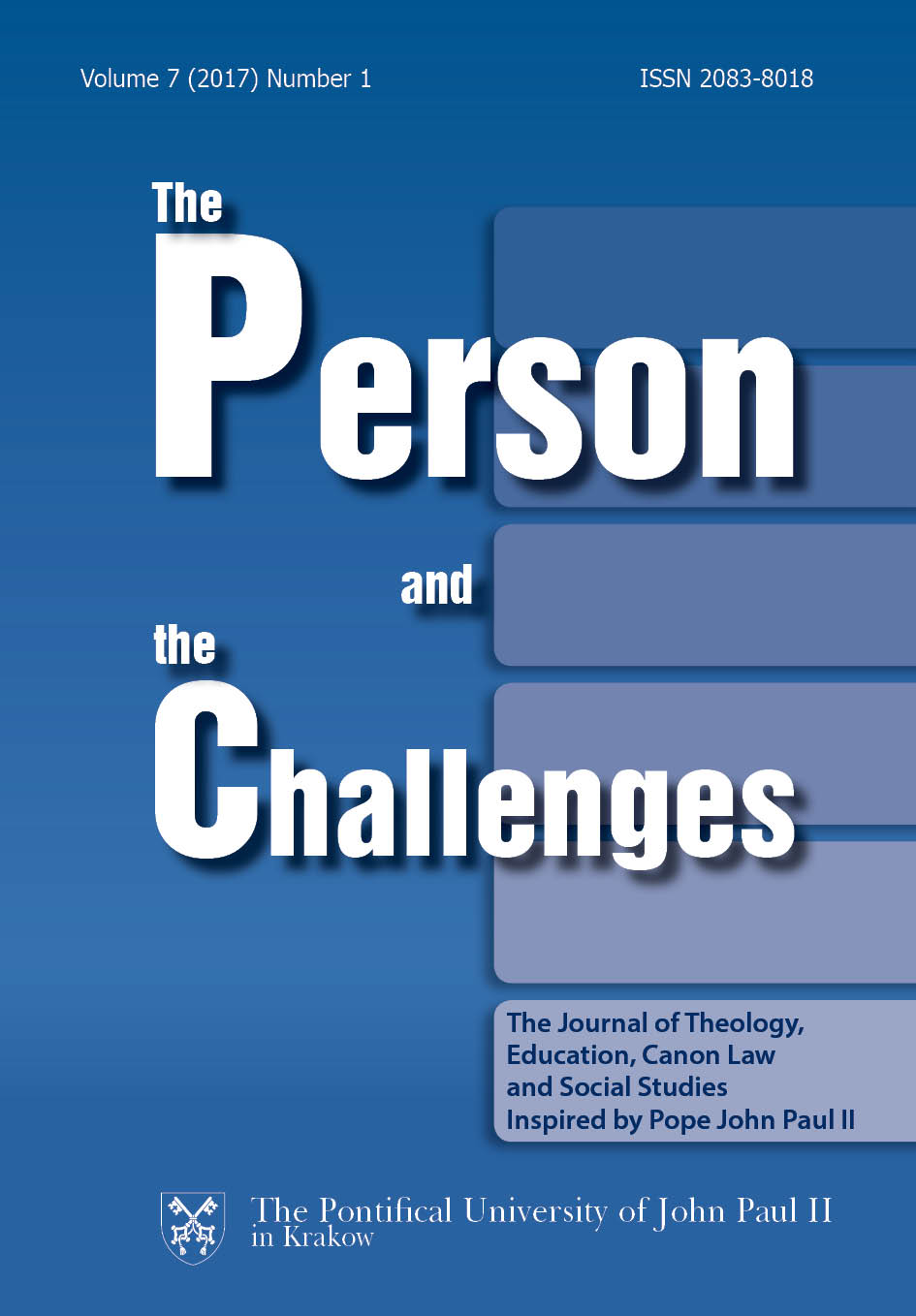Il Principio di Individiuazione nella Costituzione della Persona Umana
DOI:
https://doi.org/10.15633/pch.1978Słowa kluczowe:
principle of individuation, Thomas Aquinas, John Duns Scotus, haecceitas, actus essendi, human personAbstrakt
It is generally considered that the principle of individuation is matter and that this doctrine comes from Aristotle. This paper will examine how medieval philosophers approached this problem and we will show that they offered various theories by which the principle of individuation could be matter, form, combination of matter and form, accidents or some special principle such as haecceitas, which we find in the school of J. Duns Scotus. We will assess how all these theories resolve the problem only partially, and thus indicate the need of a single principle of individuation. This becomes particularly relevant in the context of the metaphysical study of a human person. Our research will show that it is actus essendi, which is not only the act of all acts, but also the principle of all principles.Bibliografia
Abelardo P., Logica ingredientibus, http://www.forumromanum.org/literature/abelardx.html (05.12. 2015).
Aristotele, Fisica, Roma 2005, ed. Laterza.
Aristotele, Metafisica, 3 vol., Milano 1993, ed. Vita e Pensiero.
Aristotele, Dell’Anima, Roma 2007, ed. Laterza.
Artigas M., Sanguineti J. J., Filosofia della natura, Firenze 1989, ed. Le Monnier.
Boethius, De Trinitate, trad. ital.: S. Boezio, La consolazione della filosofia. Gli opuscoli tologici, Milano 1979, ed. Rusconi.
Bonaventura, Commentaria in IV libros Sententiarum, Quaracchi 1882–1902.
Duns Scoto G., Il principio di individuazione. Ordinatio II, d. 3, pars 1, Quaestiones 1–7, Napoli 2011, ed. Il Mulino.
Duns Scotus I., Opera omnia, Editio minor, Alberobello 1998–2001, Editrice AGA.
Fumagalli Beonio Brocchieri M., Parodi M., Povijest srednjovjekovne filozofije, [Storia della filosofia medievale, Roma 2005, ed. Laterza], Zagreb 2013, ed. Kršćanska sadašnjost.
Gilson É., La filosofia di San Bonaventura, Milano 1995, ed. Jaca Book.
Gilson É., Giovanni Duns Scoto, Milano 2008, ed. Jaca Book.
Gracia J. J. E., (a cura di), Individuation in Scholasticism: The Later Middle Ages and the Counter‑Reformation (1150–1650), Albany 1994, ed. State University of New York.
Gracia J. J. E., Introduction to the problem of individuation in the early Middle Ages, München – Wien 1984, ed. Philosophia Verlag.
Grenet P.-B., Ontologia, Brescia 1967, ed. Paideia.
Iammarrone L., Giovani Duns Scoto. Metafisico e teologo. La tematiche fondamentali della sua filosofia e teologia, Roma 1999, ed. Miscellanea Francescana.
King P., The Problem of Individuation in the Middle Ages, „Theoria” 66 (2000), p. 159–184; http://individual.utoronto.ca/pking/articles/Mediaeval_Individuation.pdf (07.12.2013).
Kraus J., Die Lehre des Johanes Duns Scotus O.M.F. von der „natura communis”, Fribourg 1927.
Meßner R., Il principio di individuazione nella visione scotista, „Idee” 64 (2007), p. 19–41.
Mondin B., La metafisica di S. Tommaso d’Aquino e i suoi interpreti, Bologna 2002, Edizioni Studio Domenicano.
Owens J., The doctrine of being in the Aristotelian Metaphysics, Toronto 1978, ed. Pontificial Institute of Medieval Studies.
Reale G., Per una nuova interpretazione di Platone. Riletura della matafisica dei grandi dialoghi alla luce della „Dotrine non scritte”, Milano 1993, ed. Vita e Pensiero.
Reale G., Storia della filosofia antica, II: Platone e Aristotele, Milano 1997, ed. Vita e Pensiero.
Reale G., Storia della filosofia antica, V: Lesico indici e bibliografia, Milano 1997, ed. Vita e Pensero.
Regis E., Aristotle’s ‘principle of individuation’, „Phronesis” 21 (1976), p. 157–166.
Ross D., Aristotle, London 1995, Routlidge.
Tommaso d’Aquino, Opera omnia, http://www.corpusthomisticum.org/ (05.12. 2015).
Pobrania
Opublikowane
Numer
Dział
Licencja
Prawa autorskie (c) 2017 Borislav Dadić

Utwór dostępny jest na licencji Creative Commons Uznanie autorstwa 4.0 Międzynarodowe.
Autorzy publikujący w czasopiśmie udzielają jego wydawcy zgody o następującej treści:
- Autor zachowuje autorskie prawa majątkowe do utworu, a jednocześnie udziela wydawcy czasopisma zgody na jego pierwszą publikację w wersji drukowanej i wersji online na licencji Creative Commons Uznanie autorstwa 4.0 Międzynarodowe oraz zgody na wykonywanie opracowań, w tym przekładów.
- Autor ma możliwość udzielania zgody niewyłącznej na opublikowanie utworu w wersji, która ukazała się w czasopiśmie (np. zamieszczenia go w repozytorium instytucjonalnym lub opublikowania w książce), wraz z informacją o jego pierwszej publikacji w czasopiśmie.
- Autor może umieścić swój utwór online (np. w repozytorium instytucjonalnym lub na swojej stronie internetowej) jeszcze przed zgłoszeniem utworu do czasopisma.

